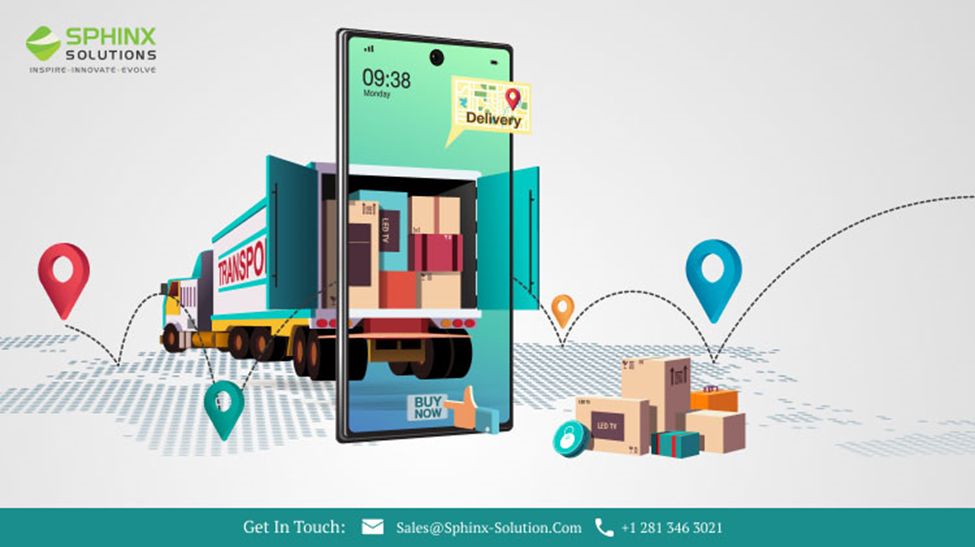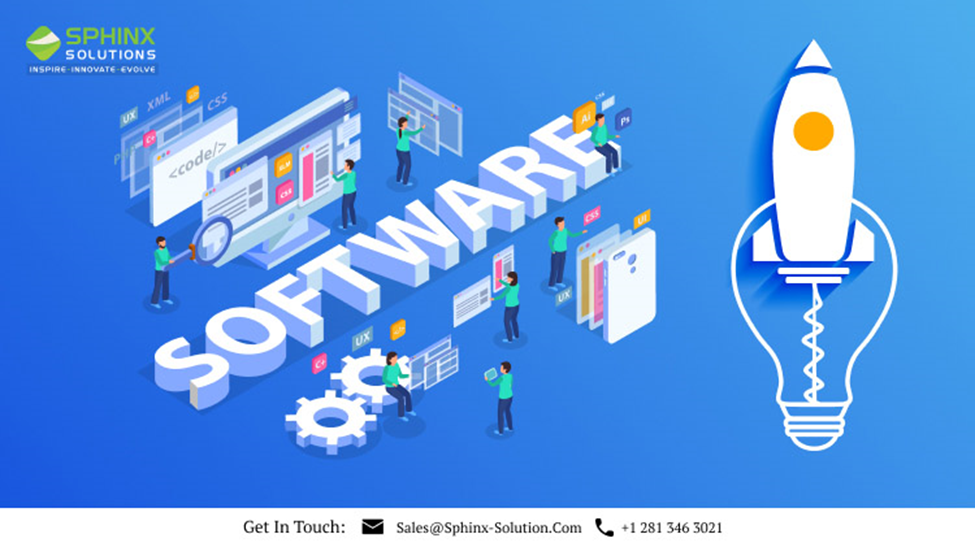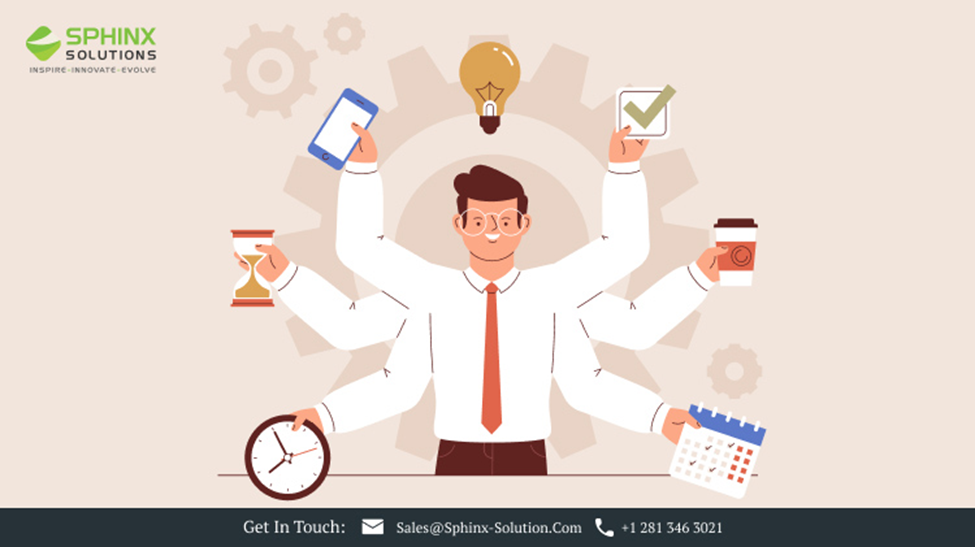How to Increase Business Productivity with Logistics Software Development?

The entire global economy of this century is strongly connected by product movement, data, information & finance. For logistics & supply chain management industries, which dedicatedly work with procurement, planning, distribution & operations, highly functional and reliable logistics customised software solution are required for streamlining several tasks and simplifying business workflow.
A feature-rich logistics software is a tool that significantly maximizes consumers’ values & drives competitive benefits in a very efficient way. Nowadays, several organizations irrespective of all sizes are rapidly adopting logistics software management solutions to make more profits. While some develop custom logistics apps or software from scratch, some choose ready-made ones.
However, whether you’re planning to build a custom solution or buy an existing one, there are too many things to consider to make the right decision. Read this blog to know more about logistics customised software solution and its all aspects. Let’s get started.
Shortcuts: ✂
- Worldwide Logistics Industry Stats
- Must Have Features of Logistics Software
- Benefits of Logistics Software Development
- How to Build Software for a Logistics Company?
- Final Words
- FAQ’s
Worldwide Logistics Industry Stats
The massive demand for the latest technologies like artificial intelligence, the Internet of Things & cloud computing simplifies the growth of the worldwide logistics and transportation management system market. This is because the software for logistics companies can incorporate a number of emerging technologies & offer significant business value. According to the report of Market Research Future, the global market size of logistics software is predicted to reach approx 17.76 billion USD with a CAGR of 8.31% by 2030.
| Forecast Period | 2022 to 2030 |
| Predicted market size (2030) | 17.76 billion USD |
| CAGR Growth Rate | 8.31% |
| Dominating Region | North America |
| Key Segments | Warehouse management Transportation management Data management Labor management |
| Top Market Players | Advantech Corporation UTI Worldwide Inc. DigiLogistics Technology Ltd Hexaware Technologies IBM Corporation Oracle Samsung Electronics Co SAP AG Tech Mahindra JDA Software |
| End-Users | Automotive Govt & Defense IT & Telecommunication Healthcare Industrial Manufacturing & Engineering Oil & Gas |
Must Have Features of Logistics Software
A fully-functional logistics management software or tool helps a logistics organization with proper planning, procurement, product distribution, operations, data info & finance. If you’d like to build custom logistics software, knowing its main features will help you make a proper budget and take necessary actions. Some important features of logistics software are:
1. Real-time Supply Chain Visibility:
End-to-end real-time supply chain visibility is one of the key features of logistics companies irrespective of all sizes. In the supply chain or logistics sectors, workers need real-time & fast access to important information on supply chain management to stay away from problems, and missing goods. This feature allows the company to respond to changes in logistics and supply chain management and to access proper analytics for making informed decisions.
2. Flexible Billing Management:
A common misconception among several logistics management sectors is that there is uncertainty in billing options and order management. A fully-functional logistics software should have the ability to offer a flexible and dynamic billing management solution. This feature makes the software capable to meet all order needs & consignments managed by supply chain or logistics organizations.
Looking For Custom Software Development Services?
With a comprehensive range of software development services, we help you scale your business effortlessly.
Talk to an Expert
3. Forecasting Tools:
To stay on top of the competitors and take the logistics business operation to the next level, using a powerful forecasting tool is important. This tool is used to predict the proper customer demands and make planning for logistics and supply chain resource management. This forecasting tool helps organizations buy only the right amount of raw materials & minimize storage requirements resulting in cost reduction.
4. Transportation Tools:
A transportation tool ensures that all goods and materials are efficiently transported by logistics companies at the lowest cost. This tool also offers required resources for managing fuel costs and national & state laws. This feature is included in the logistics and supply chain management solutions to minimize operational costs & remove supply chain problems. Apart from that, scheduling appointments, yard management & freight management functionalities can also be added to transportation tools.
5. Supply Chain Analytics:
In addition to the above-mentioned features, developing a logistics management software system with analytical facilities will help you in reporting and process evaluation. This analytics feature utilizes business intelligence to help in gaining a complete understanding of the issues faced by supply chain or logistics organizations. As a result, organizations can easily manage unforeseen disruptions that can arise in the future. Supply chain analytics of logistic apps can also be powered by AI/ML technology to improve its functionalities.
Benefits of Logistics Software Development
Logistics software is crucial for the supply chain, including manufacturing, product development, sourcing, product distribution, and services. The feature-wise benefits of logistics management software are as follows:
1. Helps in Transportation Management
A well-optimized transport management system (TMS) helps to enhance the entire process of transportation of an organization. Logistics TMS software offers a unique platform to manage goods transportation and help businesses plan, execute & optimize physical goods movement. Key benefits of transport management system include:
- Route planning: Businesses can cut distance & maximize truck capacity by managing routes carefully. The system usually considers the geolocation of the goods, types of transported goods, weather conditions, and traffic to find the best route for fast delivery.
- Audit module and payment: TMS uses this feature to analyze service alternatives, find improvement areas and compute the freight cost. It allows carriers & consumers to get confirmation of overcharging-related concerns.
- Analytics & Reporting: This feature helps businesses transmit real-time information among customers, carriers, and distributors that result in high productivity & accuracy. This helps to understand trends, display performance metrics and improve visibility.
2. Warehouse Management Systems
Enterprises or organizations use the warehouse management system (WMS) to run their warehouse operation flawlessly. The WMS of logistics mobile apps or software aids in distribution management & warehouse optimization. Proper warehouse management software also helps in industry planning, planning, and controlling and it also provides financial benefits to customers and companies. Other key advantages of the warehouse management system include:
- Enhanced traceability
- Good inventory visibility
- Efficient supply chain activities
- Effective labor management
3. Trade Management Systems
Exporters and importers use this logistics software to control their trading activities globally. The main objective of this software is to enhance trading partner communication & handle the entire operation from one dashboard. Global tariff data, sanction tools, import & export regulations, and electronic data interchange all are included in this global trading software. The key benefits of trade management software are
- Automated billing
- Automated transportation & warehouse documentation
- All transportation & manufacturing steps are visible
- Collaboration & data exchange between several departments
4. Order Management Systems
The order management system of android logistics apps or software effectively automates & simplifies the process of order fulfillment. Administrators use this system to manage inventory databases, process orders, collect data, streamline returns and enhance fulfillment systems. Apart from that, a well-optimized OMS also helps to minimize the order-to-cash cycle & boosts suppliers’ order processing efficiency. Other benefits of order management system include:
- Get orders out more accurately
- Make warehouse operations streamlined
- Customized documentation and reporting
- Simplifying complex orders
- Adds more value to the supply chain
5. Inventory Management Systems
Inventory management systems (IMS) can efficiently monitor goods’ availability & maximize productivity. This platform also aids in supervising and tracking purchases, managing goods, and regulating order fulfillment and sales. Apart from that, IMS can centralize information for data retrieval and quick processing. 6 essential benefits of using this management software include:
- Streamlined inventory management process
- Ensuring order fulfillment
- Better business negotiations
- Accurate expense tracking
- Proper decision making
- Enhanced visibility
How to Build Software For a Logistics Company?
Logistics software systems usually come in a vast range of sizes and shapes. Some software are designed for supply chain management and some of them are used for inventory or fleet management solutions. Technically, every software takes care of the overall logistics management & ensures smooth goods transportation. If you’re planning to build customised software solution for your company, following steps you have to consider.
1. Define Your Business Objectives
Start by determining what you would like to achieve with your custom logistics software. With dedicated logistics management software, you can bring different functions onto one platform for executing all your orders seamlessly along with automating routine business processes. Before designing your logistics software, you need to consider common goals like
- Real-time logistics tracking
- Inventory management
- Route planning & optimization
- Proper invoicing
- Contract maintenance
- Vendor management
- Comprehensive analytics & reporting
- Multi-user portal
Apart from that, to make your software more advanced, you can add several functionalities such as CRM, warehouse management, enterprise asset management, supply chain management, etc.
2. Choose a Software Development Team
While you can ready-made software development solutions from the market, a custom LMS can be the game changer for your business. Custom software can adapt all your objectives easily and allows you to manage several logistics operations & activities with ease. Once you determine your project goals, you should choose a dedicated team of developers to create a custom logistics management system. However, when you choose a logistics software development company, you must ensure they provide the following solutions.
- Open architecture design: It will help to easily implement new functionalities & adopt more technologies.
- Multiple services integration: Integration with other services will help you use the complete potential of the platform.
- Scalability: It will help to achieve all increasing demands your organization grows
- Security levels: It helps to protect critical and sensitive data from breaches
3. Select Between On-premises & Cloud TMS
Logistics software systems are divided into two different categories – on-premises and cloud transportation management systems. On-premises TMS is installed on the company’s server, making it a more secure and reliable tool for logistics software and transportation management application development. At the same time, a cloud-based management system is stored & controlled on the vendor server & properly accessed via a web browser.
For cloud-based TMS, no additional hardware is required, that’s why the initial cost is less than on-premises TMS. However, many companies use on-premises management systems to implement cloud & SaaS applications to efficiently achieve business goals. So, it’s suggested you choose between these two TMS based on your organization’s performance needs.
4. Focus on Functionality
Next, you need to focus on functionality. Depending on the functionalities you would like to automate, focus on the tools, modules, and functionalities that will be added to the system. Some of the major modules include:
- CRM: Customer relationships management
- WMS: Warehouse management systems
- SCM: Supply chain management
- EAM: Enterprise asset management
- MES: Manufacturing execution systems
Then, professional software developers will start working on the creation of interfaces and APIs for administrators.
Want To Hire Software Developers?
Leverage our custom software development solutions to boost your business growth.
Book an Appointment
Final Words
Logistics is a vast field and as the major backbone of service & product delivery, in today’s world, it has become an essential part of a business success equation. Fast-growing startups and large enterprises are rapidly investing in developing their custom logistic management software to get limitless functionalities and add uniqueness to their services. If you’re planning to make custom software or searching for customised software solution, talk to our experts today for complete guidance.
FAQ’s
What are the top 5 logistics software?
Logistics software takes care of the overall logistics channels & ensures smooth & streamlined goods transportation. The top 5 logistics or supply chain software systems available in the market are
- Loginext Mile
- OptimoRoute
- Ramco Logistics
- Track-POD
- TruckLinks
How to create logistics software?
To build a feature-rich customized logistics software you need to consider the following steps
1. Define your project objectives
2. Find the right software development agency
3. Select between cloud & on-premises TMS
4. Determine the essential features
5. Focus on functionality
What are the categories of logistics software?
Based on an organization’s needs, logistics software systems can be categorized into different types:
- Warehouse management software
- Supply chain management software
- Third-party fleet management software
- Transportation management software
- Route optimization software
- Logistics scheduling software
- Document management
- Driver & vehicle management
What are the 8 types of logistics?
Logistics can be split into 8 different types:
1. Inbound transportation
2. Fleet management
3. Outbound transportation
4. Warehousing
5. Order fulfillment
6. Materials handling
7. Demand planning
8. Inventory management
What is SCM logistics?
Supply chain management or SCM is a complex logistics process that manages the overall production flow of materials or goods to improve quality, delivery, profitability, and customer experience. SCM helps to build a strong collaboration with suppliers, reduce overhead and inventory costs and enhance risk mitigation. Though it uses logistics to transport goods to the customers, it also strives to increase the competitive edge of a business.
Science and TechnologyArticles from Sphinx Solution
View blog
Establishing a startup with innovative · software business ideas · is an exciting and rewarding vent ...

Software development is one of the specialized fields & it has become highly important in today’s co ...

Today, we follow and maintain an app-dependent lifestyle. This means our daily routines, studying ha ...
You may be interested in these jobs
-
Program Officer, Literacy field
Found in: Talent IN C2 - 5 days ago
Room to Read Rajasthan, India Full timePosition Overview: · The Program officer, literacy field will oversee the program and lead the agenda of system strengthening at district level. S/he will be responsible for coordination, development, and reporting of the Literacy program implementation in a district. S/he would ...
-
Partner Account Executive
Found in: Talent IN C2 - 5 days ago
WATI Bengaluru, IndiaWati is a growing CPaaS platform that provides end-to-end WhatsApp API solutions for SMBs and large enterprises. We aim to simplify business communication, helping businesses meet their customers where they are - WhatsApp. · Backed by global investors such as Sequoia, DST Global, ...
-
Full Stack Developer PHP Javascript
Found in: Talent IN C2 - 1 day ago
iMandi Mumbai, IndiaAbout iMandi:iGrameen iMandi is building a socialecommerce platform as a onestop shop for the rural consumers ofIndia. iMandi has multiple marketplaces to meet all the needs offarmers and has been built for large communities with commercecommunication content and informationenabl ...



Comments